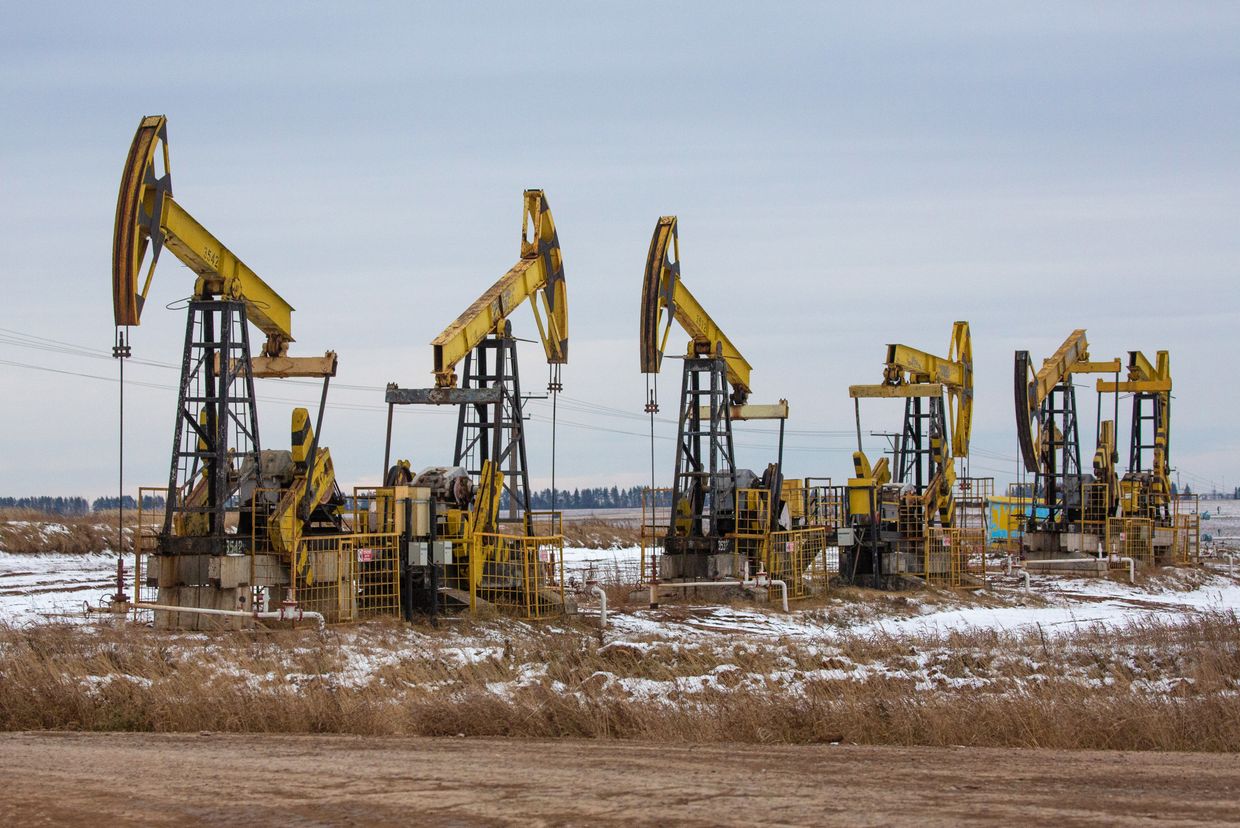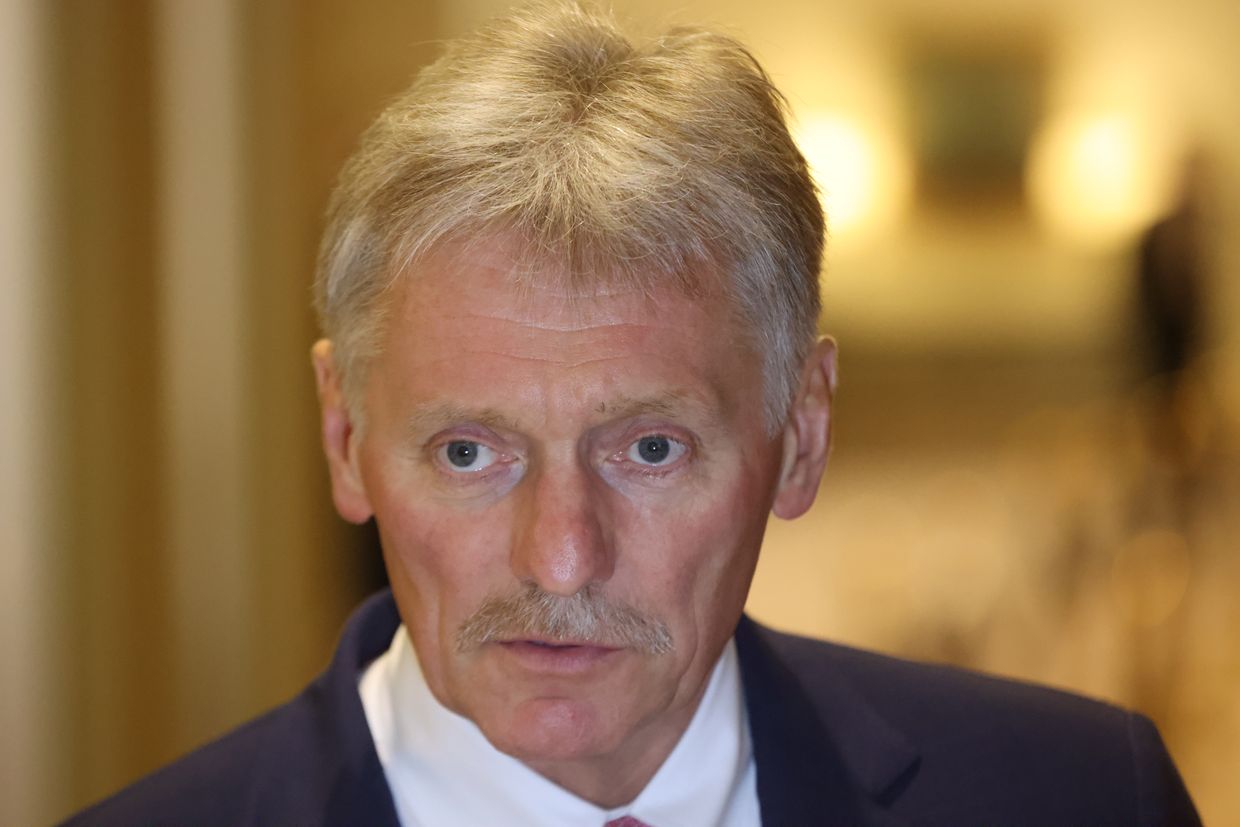Kremlin spokesperson Dmitry Peskov rejected the idea of a 30-day ceasefire between Russia and Ukraine, claiming in an interview with ABC News on May 10 that it would be "an advantage" for Ukraine.
The visit marks Merz’s first trip to Ukraine, and the first time all four leaders have travelled there together.
"Our involvement in the war was justifiable, and this belongs to our sovereign rights," North Korean dictator Kim Jong Un said. "I regard this as part of the sacred mission we must execute for our brothers and comrades-in-arms."
The number includes 1,310 casualties that Russian forces suffered over the past day.
"We have a plan B and a plan C. But our focus is plan A, the essence of which is to get everyone's support" for Ukraine's accession, EU foreign policy chief Kaja Kallas said.
"(T)he presence at the Victory Parade of a country that bombs cities, hospitals, and daycares, and which has caused the deaths and injuries of over a million people over three years, is a shame," Polish Prime Minister Donald Tusk said.
"According to the participants of the performances, their goal is to remind the civilized world of the barbaric actions of Moscow, which for many years and decades has systematically violated international law," a source in Ukraine’s military intelligence agency (HUR) told the Kyiv Independent.
"I have great hope that an agreement for a ceasefire in Ukraine will be reached this weekend," German Chancellor Friedrich Merz said on May 9, shortly before traveling to Kyiv alongside the leaders of France, Poland, and the U.K.
U.K. Prime Minister Keir Starmer, French President Emmanuel Macron, German Chancellor Friedrich Merz, and Polish Prime Minister Donald Tusk will arrive in Kyiv early on May 10.
The United States embassy in Kyiv on May 9 issued a warning that Russia could launch "a potentially significant" attack in the coming days, despite Putin's self-declared Victory Day "truce."
The sanctioned oil tankers have transported over $24 billion in cargo since 2024, according to Downing Street. The U.K. has now sanctioned more shadow fleet vessels than any other country.
The sanctions list includes 58 individuals and 74 companies, with 67 Russian enterprises related to military technology.
Oil prices climb amid Russian war talks and U.S. sanctions on Iran

Global oil prices increased on March 24 driven by U.S. sanctions on Iran and ongoing discussions on a potential ceasefire in Russia’s war in Ukraine.
Russia’s war in Ukraine continues to significantly influence global oil markets, with international negotiations in Saudi Arabia potentially restructuring energy supply chains and market strategies.
Washington allegedly intends to conclude a separate ceasefire agreement in the Black Sea until a broader ceasefire agreement is reached.
According to Reuters, Brent crude futures rose 0.5% to $72.52 a barrel, while U.S. West Texas Intermediate crude increased 0.6% to $68.68.
Ole Hansen, head of commodity strategy at Saxo Bank, told Reuters that oil prices are stable as traders weigh new U.S. tariffs, economic risks, and rising OPEC+ supply. He added that stronger U.S. sanctions could cut Iran’s oil exports.
On March 21, global oil prices rose, ending the week with another substantial rise. The market was supported by new U.S. sanctions against Iran and the latest OPEC+ plan to limit production, which increased expectations of a supply cut.
The day before, on March 20, Washington imposed additional sanctions aimed at limiting Iranian oil exports. According to the U.S. State Department, for the first time, a Chinese refinery was subject to restrictions.
The sanctions could reduce global oil supply by 1 million barrels per day, although this could be partially offset by increased production in OPEC+, Ashley Kelty of Panmure Liberum told Reuters.
Last week, OPEC+ unveiled a new production cuts schedule for the seven countries to compensate for the excess of quotas. This reduction will exceed the planned production increase that is to take place next month.
Currently, OPEC+ maintains a cap of 5.85 million barrels per day, or about 5.7% of global supply, in several stages starting in 2022 to support the market.

Most Popular

After 3 years of full-scale war in Ukraine, Europe announces plan to ban all Russian gas imports

Ukraine, Europe's ceasefire proposal includes US security guarantees, no recognition of Crimea, Reuters reports

Journalist Roshchyna's body missing organs after Russian captivity, investigation says

After Russia's deadly attack on Kyiv, Vance reposts denunciation of Zelensky

Ukrainian sea drone downs Russian fighter jet in 'world-first' strike, intelligence says
Editors' Picks

How medics of Ukraine’s 3rd Assault Brigade deal with horrors of drone warfare

As Russia trains abducted children for war, Ukraine fights uphill battle to bring them home

'I just hate the Russians' — Kyiv district recovers from drone strike as ceasefire remains elusive



